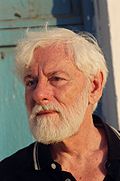LET ME come back to the story about Zhou Enlai, the Chinese Communist leader. When asked what he thought about the French Revolution, he famously answered: "It's too early to say."
This was considered a typical piece of ancient Chinese wisdom -- until somebody pointed out that Zhou did not mean the revolution of 1789, but the events of May 1968, which happened not long before the interview in question.
Even now it may be too early to judge that upheaval, when students tore up the cobblestones of Paris, confronted the brutal police and proclaimed a new era. It was an early forerunner of what is happening today all over the world.
QUESTIONS ABOUND. Why? Why now? Why in so many totally different countries? Why in Brazil, Turkey and Egypt at the same time?
We know how it started. In the souk of Tunis, of all places. I have been there many times, when Yasser Arafat was staying in that city. The market always struck me as a happy place, full of noise, eager shopkeepers, haggling tourists and local men with jasmine flowers behind their ears.
It was there that a policewoman confronted a fruit vendor and overturned his cart. He was mortally insulted, set himself on fire and set in motion a process that now involves many millions of people around the world.
The Tunis example was taken up by the Egyptian masses, who assembled in Tahrir Square and eventually overturned their dictator. Then it was our turn, and almost half a million Israelis went out into the streets to protest the price of cottage cheese. Then there were upheavals in Syria, Yemen, Bahrain and other Arab states, collectively known as the Arab Spring. In the US, the Occupy Wall Street movement staged its own Tahrir Square in New York. And now millions are demonstrating in Turkey and Brazil, and Egypt is aflame again. One may add Iran and other places.
How did this come about? How does it work? What is the hidden mechanism?
And especially: why at this point in time?
I CAN think of two inter-related phenomena in contemporary life that make the uprisings possible and probable: television and the social media.
Television informs viewers in Kamchatka about events in Timbuktu within minutes. The huge demonstrations in Istanbul's Taksim Square could be followed in real time by people in Rio de Janeiro.
Once upon a time, it took weeks for people in Piccadilly Circus in London to hear about events in the Place de la Concorde in Paris. After the battle of Waterloo, the Rothschilds made their killing by using messenger pigeons. In 1848, when revolution spread from Paris throughout Europe, it took its time, too.
Not any more. Brazilian youngsters saw what was happening in Gezi Park, Istanbul, and asked themselves: why not here? They saw that determined young men and women could withstand water cannon, tear gas and batons, and felt that they could do it, too.
The other instrument is Facebook, Twitter and the other "social media." Five young men sitting in a Cairo cafe and talking about the situation could decide to launch an online petition for the removal of the incumbent president, and within a few days tens of millions of citizens signed. Never before in history was such a thing possible, or even imaginable.
This is a new form of direct democracy. People don't have to wait anymore for the next elections, which may be years away. They can act immediately, and when the groundswell is powerful enough, it can develop into a tsunami.
HOWEVER, REVOLUTIONS are not made by technologies, but by people. What is it that arouses so many different people in so many different cultures to do the same thing at the same time?
(Note: You can view every article as one long page if you sign up as an Advocate Member, or higher).






